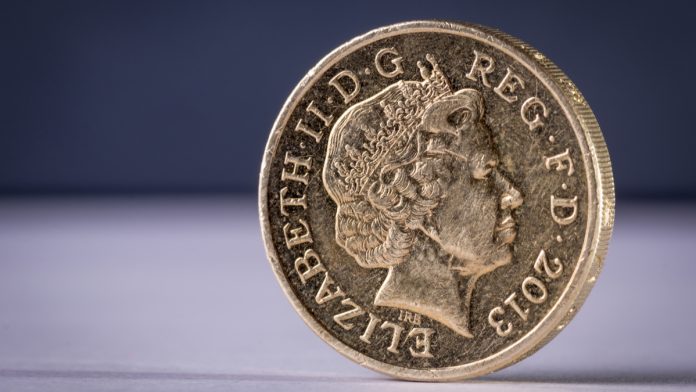- Pound (GBP) falls in choppy trade
- UK recession worries rise
- Euro (EUR) recovers from yesterday’s losses
- ECB rate decision is next week
The Pound Euro (GBP/EUR) exchange rate is falling after gains yesterday. The pair rose +0.07% in the previous session, settling on Wednesday at €1.1519 and trading in a range between €1.1507 – €1.1549. At 07:35 UTC, GBP/EUR trades -0.16% at €1.1501.
The pound is falling lower after small gains in the previous session after UK inflation data proved to be stickier than expected.
Gains from stubbornly sticky inflation were short-lived as the market worries about the prospect of high inflation and high interest rates and the impact that could have on the UK economy.
High inflation and interest rates would keep pressure on UK households, curbing spending and raising the prospect of a deeper economic downturn in the second half of this year.
Moreover, a recent study showed that British employers expect to give staff an average pay rise of 5% over the coming year. This was down from 6% previously. The data comes after figures earlier in the week showed that UK wage growth is in the three months to August.
Today UK economic data is in short supply, leaving sentiment to influence the pound. The market remains in a risk-off mood amid ongoing concerns of an escalation in the conflict between Israel and Hamas and worries that the US Federal Reserve will keep interest rates higher for longer.
After falling yesterday, the euro has rebounded against the pound after the release of eurozone inflation data.
Consumer prices in the euro area cooled in line with forecasts to 4.3% year on year in September, down from 5.2%. The data supports the view that the European Central Bank has reached the end of its hiking cycle, a view which several ECB members have reiterated since.
There is no high-impacting eurozone economic data due to be released today. Attention will start turning towards the ECB monetary policy meeting next week, although the central bank is not expected to raise interest rates. That said, the central bank along with other central banks globally, will be watching oil prices carefully for any inflationary impact from the Israel-Hamas conflict.





